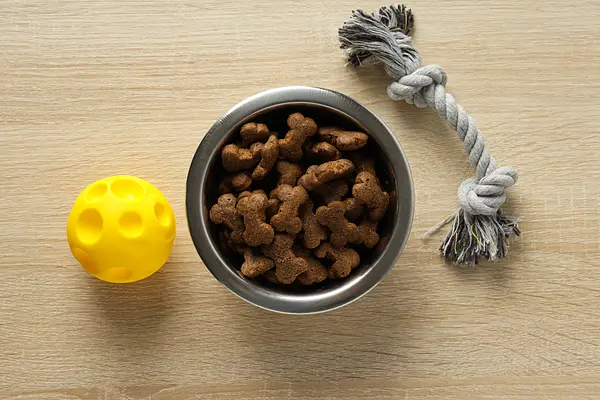Welcome, new puppy parents! As you embark on this exciting journey with your furry little bundle of joy, it's crucial to understand the importance of proper nutrition and feeding habits. Just like human babies, puppies have specific dietary needs to support their rapid growth and development. In this blog post, we'll guide you through choosing the right food and establishing a feeding schedule that will keep your puppy healthy and happy.
Choosing the Right Puppy Food
When it comes to selecting the best food for your puppy, look for high-quality, age-appropriate options. Puppy food is specially formulated to provide the essential nutrients, vitamins, and minerals needed for their growing bodies. Here are a few key factors to consider:
Protein: Puppies require a diet rich in high-quality protein to support muscle development and growth. Look for food with real meat, such as chicken, lamb, or fish, as the first ingredient.
Fat: Healthy fats, like those found in fish oil and flaxseed, provide energy and support brain development. Make sure the food contains a balanced amount of fat.
Carbohydrates: Complex carbohydrates, such as brown rice and sweet potatoes, provide sustained energy and aid in digestion.
Calcium and Phosphorus: These minerals are essential for strong bones and teeth. Puppy food should have the right balance of calcium and phosphorus.
Always consult with your veterinarian to determine the best food for your puppy's specific breed, size, and health needs.
Establishing a Feeding Schedule
Creating a consistent feeding schedule is crucial for your puppy's health and well-being. It helps with digestion, potty training, and establishing a routine. Here are some tips for setting up a feeding schedule:
Frequency: Puppies need to eat more frequently than adult dogs. Generally, puppies under 4 months old should eat 3-4 meals per day, while those between 4-6 months can eat 2-3 meals daily.
Portion Control: Follow the feeding guidelines on the food package or consult with your vet to determine the appropriate portion sizes for your puppy's age and weight.
Timing: Feed your puppy at the same times each day to establish a routine. This will also help with potty training, as puppies typically need to go shortly after eating.
Fresh Water: Always provide clean, fresh water for your puppy. Change the water daily and wash the bowl regularly.
Gradual Transitions: If you need to switch your puppy's food, do so gradually over a week to avoid digestive upset. Mix a small amount of the new food with the old, gradually increasing the proportion of new food each day.
Tracking Your Puppy's Progress with Doggy Time
Keeping track of your puppy's feeding, potty training, and other activities can be challenging, especially with a busy schedule. That's where the "Doggy Time" app comes in handy! This user-friendly app allows you to:
- Log your puppy's meals, potty breaks, and other important events
- Set smart alarms and reminders for feeding and training sessions
- Collaborate with family members or pet sitters to ensure everyone is on the same page
- Monitor your puppy's growth and progress over time
With Doggy Time, you'll have a centralized, easy-to-use tool to help you stay organized and provide the best care for your growing puppy.
Remember, your puppy's nutrition and feeding habits lay the foundation for a lifetime of health and happiness. By choosing the right food and establishing a consistent feeding schedule, you're giving your puppy the best possible start in life. Happy feeding!






